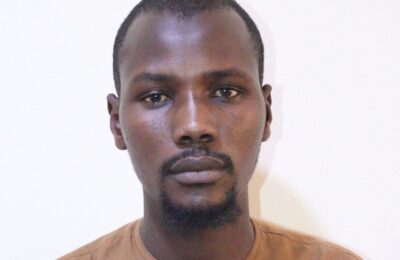In a nation where the rhythm of drums meets the re-echo of church bells, Nigeria still wrestles with a centuries-old paradox — the worship of God through divided altars. From the days of ancient Israel to the heart of Africa’s most populous nation, the tension between divine truth and cultural deities remains unbroken. Like the Samaritans in 2 Kings 17:33, many profess to fear the Lord, yet still bow to the gods of their fathers. The spiritual fusion once condemned in Samaria has found subtle reincarnations across some Nigerian faith communities — a blend of Holy biblical devotion and ancestral reverence that continues to shape moral consciousness, politics, and national destiny.
The historical Samaritans, after being resettled by the Assyrians, feared the Lord but served their own gods. Their hearts were divided — one part toward heaven, another chained to earth. That duality echoes in Nigeria today, where religion thrives but righteousness struggles for breath. In many churches and ministries, prophets still sprinkle holy oil over charms buried beneath the altar; traditional priests recite Psalms before invoking the spirits of rivers; and politicians kneel before pastors on Sunday, only to renew covenants at shrines on Monday. The same heart that calls upon Jehovah still clings to Amadioha, Ogun, Iye Unyejima, and the goddess of the village stream.
This spiritual duality is not ignorance but identity — a residue of the cultural intermarriage between African cosmology and imported faith. The missionaries brought the Cross, but they could not uproot all the ancestral trees beneath it. As a result, the average Nigerian believer stands at a crossroads: one foot in the sanctuary, the other in the shrine. Even among the educated elite, syncretism masquerades as cultural pride — a subtle defense of heritage cloaked in the language of tolerance. Yet, beneath that tolerance lies a dangerous dilution of truth, where divine absolutes are negotiated in the name of tradition.
Dr. Paul Enenche once warned that “a divided heart produces a divided destiny.” Prophet TB Joshua, too, declared that “you cannot serve God and still consult the dead.” Their words mirror the lament of the prophets who rebuked Israel’s divided devotion. In the same vein, the Nigerian church must confront its hidden idols — not those of wood and stone, but of power, money, and superstition. The fusion of light and darkness has produced a generation that prays with faith yet fears ancestral curses; that worships God publicly but sacrifices secretly.
Sociologists may call it “religious pluralism,” but to the discerning, it is spiritual compromise dressed in cultural attire. In marketplaces, mosques, and ministries, the Nigerian spirit oscillates between the sacred and the superstitious. Even national politics is haunted by this duality — leaders invoke God’s name while anchoring power on fetish foundations. The consequence is a moral nation without moral clarity, a people rich in faith but poor in spiritual authenticity.
Nigeria’s youth stand at the frontline of this moral battle. In an age where desperation meets deprivation, many young people are seduced by the gospel of greed — ritual killings, occult practices, and money-driven sacrifices that mock the sanctity of human life. It is here the nation must draw a moral line and act. The dividends of democracy — the blessings of God upon Nigeria’s vast resources — must be shared equitably so that young men and women are not driven into the dark alleys of money rituals, fraud, or violent crime. The government, faith leaders, and communities must rise in one accord to redirect the youth toward the worship of the true and living God, whose blessing enriches and adds no sorrow.
If Nigeria must rise, its altars must be purified. The revival the nation seeks cannot come from emotional religion but from uncompromised truth. The Samaritans feared the Lord yet served other gods — and their kingdom fell into captivity. So will any nation that mixes light with shadow, truth with fable, and God with gods. The path to renewal begins where syncretism ends — at the point where Nigeria stops serving two masters and chooses whom she will truly worship.
As the prophet Elijah thundered on Mount Carmel, “How long will you waver between two opinions? If the Lord be God, follow Him!” (1 Kings 18:21). The same call now echoes across Nigeria’s valleys and cities — a divine ultimatum to a people who must finally decide whether to live for God or merely sing His name while bowing to other powers. The youth of Nigeria must heed this call, for in their purity, worship, and truthfulness lies the nation’s redemption and the restoration of its divine destiny.
– Inah Boniface Ocholi writes from Ayah – Igalamela/Odolu LGA, Kogi state.
08152094428 (SMS Only)




